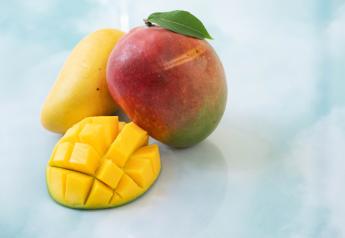Apples have small but important foodservice role

Smaller sizes and varieties that are on the lower end of the price scale often are the choice of foodservice buyers, Michigan apple grower-shippers say.
About 6% of the business at Applewood Fresh LLC, Sparta, Mich., was with foodservice customers last season, said Brian Coates, vice president of sales and business development. “Last year was less than what it likely would have been due to a low crop in Michigan,” he said. “We did not have fruit to do some of the later-season business we have done in the past and had to end early with some foodservice customers.”
The company’s foodservice accounts include schools, universities and jails, as well as distributors that provide fruit to restaurants or cruise ships, he said. Standard tray packs of apples without price look-up stickers usually are the package of choice.
Much of the foodservice business at BelleHarvest Sales Inc., Belding, Mich., is with school systems, said president Nick Mascari. Sliced apples are popular among students, but the company ships some bulk packages to schools, as well. BelleHarvest also sells apples to large foodservice distributors that supply product to various foodservice accounts.
Foodservice sales are a small but important part of the business at Sparta-based Riveridge Produce Marketing Inc., said Trish Taylor, marketing manager. “Foodservice (distributors have) proven they’re incredibly flexible and adaptable with market changes,” she said. “They are thinking ahead on the challenges and opportunities for their accounts — coming to us to explore new variety and packaging options to help their customers with incremental sales, convenience and efficiencies.” Their customers are a mix of restaurants, hospitality, hospitals and more, she said. “These industries use apples from a snack to an entrée ingredient.”
Apples often are used as ingredients by foodservice customers, Mascari said. The company also sells a lot of apples to processors and wholesale distributors for slicing. Red apples are popular at foodservice, he said, but BelleHarvest encourages buyers to consider varieties other than red delicious. “We want to provide a nutritional piece of fruit, but we want to make sure they get a great eating experience out of it,” Mascari said.
Gala, red delicious and fuji are among the most popular varieties at Applewood Fresh, Coates said. “(Foodservice buyers) are generally looking for something that is at the lower end of the pricing scale,” he said.
Distributors typically are more interested in size of the apples than the variety, Mascari said. They generally order “sizes that are not overly large,” like 88s or 100s, he said.
Schools systems also prefer smaller counts. COVID-19 caused a downturn in some foodservice business for Applewood Fresh, Coates said. “A number of customers did not buy at all, since they did not have anywhere to go with product,” he said. But sales seem to have rebounded. “For the most part, business with our group of foodservice customers is back to normal,” Coates said.
In the first year of COVID-19, Riveridge increased its volume with foodservice in part due to the USDA school lunch and the food box programs, Taylor said. Three-pound poly bag purchases increased for COVID-19 food box programs, she said. “We continue to experience supply chain issues, but navigate with extra planning,” she said.
Business on smaller sizes that are preferred by foodservice customers slowed during COVID-19 as restaurants and other establishments shut down or cut back their hours, Mascari said. But the retail-driven company made up for the drop in demand from foodservice. “Anything that was off on the foodservice side was definitely picked up on the retail side with the demand there,” Mascari said. Although there is always a certain demand for apples, the strength of that demand is cyclical, Mascari said. “When it’s harvest time, demand for apples goes up,” he said. “As the season goes on, it kind of levels out.”
Demand picks up again at the beginning of the year, when consumers make New Year’s resolution to eat more healthfully. “As you approach the spring/summer months, it drops off again, because everybody is looking for summer fruit,” he said.







